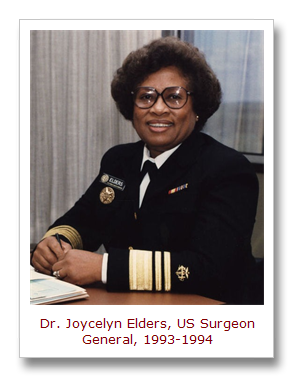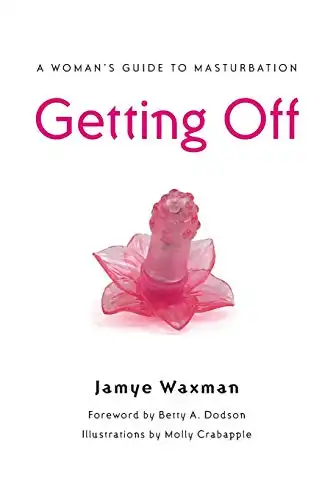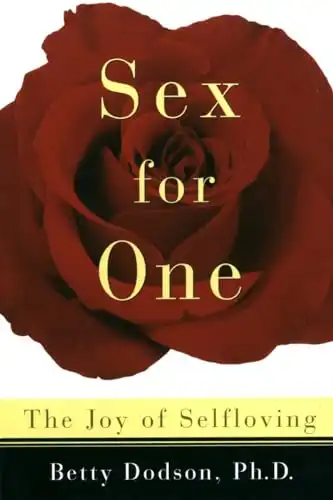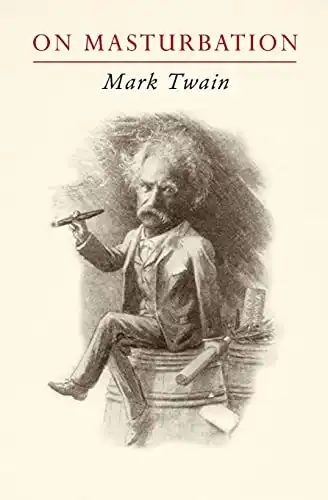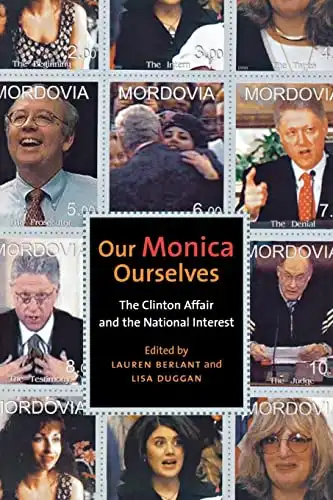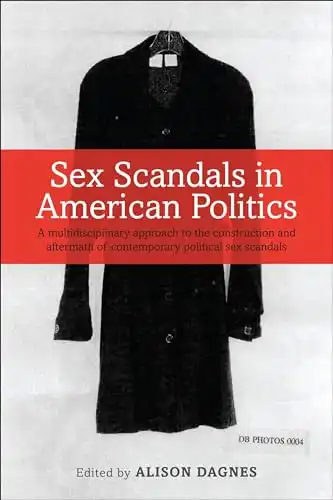Dr. Joycelyn Elders endured a lot on her rise to becoming the first African American to be appointed Surgeon General of the United States.
She was born in 1933, the daughter of a poor sharecropper in a segregated community in rural Arkansas.
As a child, she had to balance working in the cotton fields with attending an all-black elementary school 13 miles away. But she studied hard, made it through high school, and earned a scholarship to Philander Smith College, an all-black college in Little Rock.
After graduating, Elders served for several years in the United States Army’s Women’s Medical Specialist Corps. In 1956, she entered the Arkansas Medical School on the G.I. Bill, where she was the only black student and was required to eat in a separate dining room with the cleaning staff.
Elders persevered, obtained her M.D. degree in 1960, then a Masters in biochemistry in 1967. She became a respected professor, an expert in pediatric endocrinology and a pioneering researcher in childhood growth problems and juvenile diabetes.
In 1987, Dr. Elders became the Director of the Arkansas Department of Health, where her efforts led to major increases in early childhood screenings and immunizations.
In 1993, President Bill Clinton appointed her as the US Surgeon General. Like many Surgeon Generals before her, Dr. Elders was outspoken on the need to address current health-related issues, such as the growing AIDS epidemic.
On December 1, 1994, she was a featured speaker at the United Nations-sponsored World AIDS Day conference in New York City.
In a Q&A session after her formal remarks, a conference participant asked her if it might be possible to reduce the spread of AIDS through “more explicit discussion…of masturbation,” as an alternative to heterosexual or homosexual sex.
“I think that is something that is a part of human sexuality and it’s a part of something that perhaps should be taught.”
Her remark generated a firestorm of criticism by Christian groups, Clinton’s Republican critics and even some Democrats.
Elders was already controversial for speaking out in support of sex education, birth control and legalization of marijuana.
And, by God, how could anyone not be shocked and offended by someone who suggested publicly that masturbation exists and that maybe people should get some factual information about it to counter all the myths and misinformation they hear when they’re growing up?
It was almost as shocking as if she’d said something crazy like: it might be OK for Presidents to have secret sexual affairs with young White House interns.
President Clinton, who would soon be having a secret sexual affair with a young White House intern, decided that Dr. Elders’ remark about masturbation was causing too much media frenzy.
So, Clinton fired her. Technically speaking, he demanded her resignation. Of course, White House Chief of Staff Leon Panetta told the press she would have been fired if she had not resigned.
Panetta explained somberly: “There have been too many areas where the President does not agree with her views. This is just one too many.”
A few years later, Clinton’s affair with Monica Lewinsky created a much bigger media frenzy and almost caused Clinton to get fired as president by means of impeachment.
In light of all that, his decision to axe Dr. Elders over a fairly mild and now forgotten quote seems like an even lower blow than it did at the time. (So to speak.)
On the positive side, Elders went on to have a successful post-Clinton career as a Professor of Pediatrics at the University of Arkansas for Medical Sciences and a popular speaker on the lecture circuit, speaking against teen pregnancy and in favor of birth control.
* * * * * * * * * *
Comments? Corrections? Post them on the Famous Quotations Facebook page.
Related reading…


